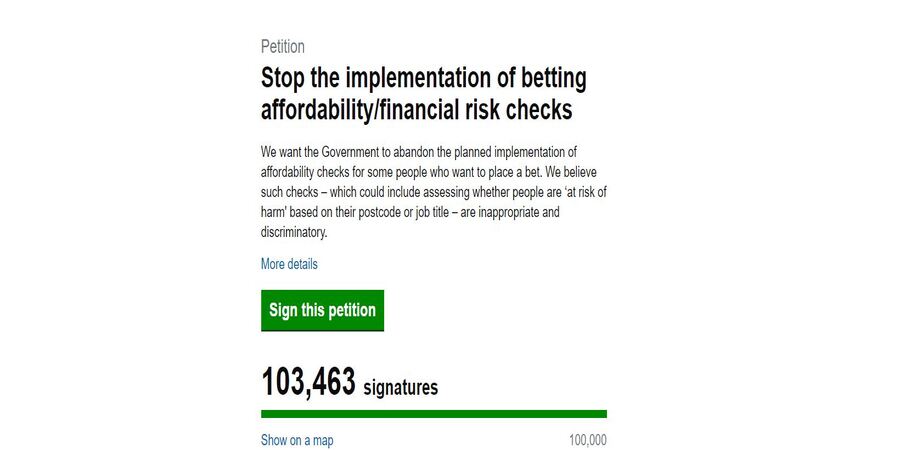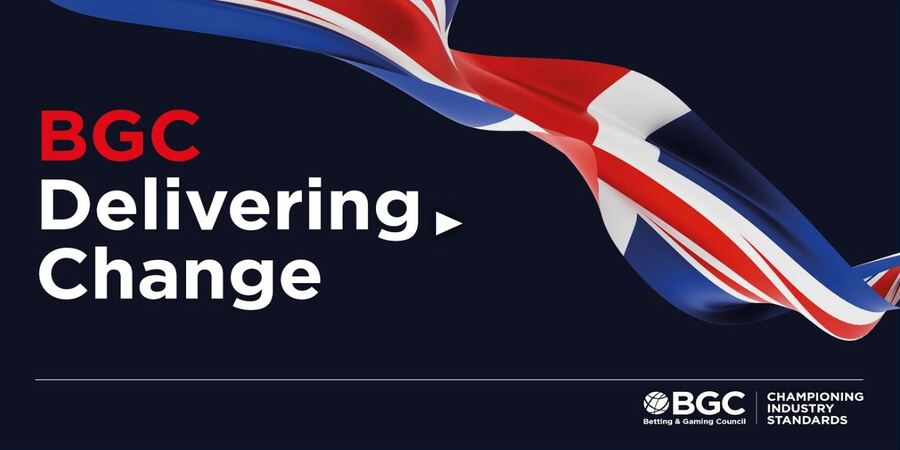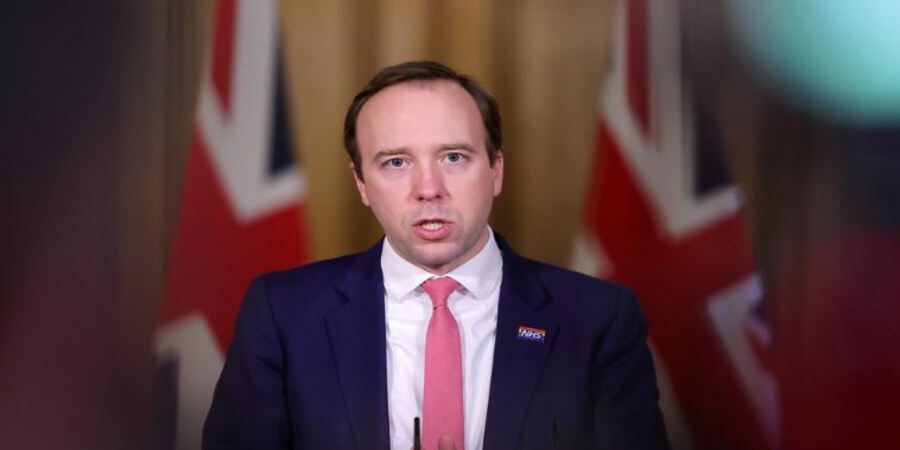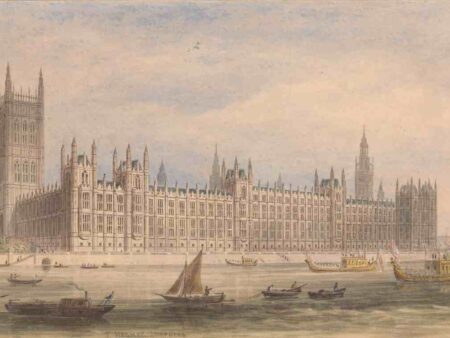By Jon Bryan | Expected reading time 5 mins
Last Updated: March 18, 2024

Written by Jon Bryan
As previously reported by us, more than 100,000 people signed a petition which questioned the government’s policy on Affordability Checks. This triggered a debate in Parliament. Jon Bryan offers his thoughts on the debate and what it might mean for gamblers.
AN ‘EXODUS OF BETTORS’
Anyone following the debate on gambling will know that Affordability Checks have been a significant and contentious discussion point. The British Horse Racing Association said there would be an ‘exodus of bettors’ if they were introduced – an argument which has generated much support.
Many in the industry have raised questions about Affordability Checks; and consumer groups like the Gamblers Consumer Forum and GamblingReform.co.uk have openly campaigned against them. MPs with an interest in horse racing have raised significant concerns, and even Rishi Sunak raised some doubts about their introduction when he was Chancellor of the Exchequer.
But not everyone is opposed to them, as we saw in the recent debate where some MPs such as Carolyn Harris and Sir Iain Duncan Smith spoke in favour of their introduction. Think tanks like the Social Market
Foundation have also consistently argued in favour of Affordability Checks and were one of the first groups to produce some concrete proposals for implementing them.
In The Guardian, Greg Wood said that Affordability Checks had a ‘reasonable aim’, while also stating that the Gambling Commission tends to makes basic mistakes in its understanding of gambling, and that the Commission has a ‘distinctly chequered record’.
Only a few months ago, Kevin Brennan MP, continually pressed the Minister and the Government at a Parliamentary Select Committee about the lack of a proper impact assessment on government plans for
Affordability Checks, and other proposed changes to betting legislation.
Even now, six months after this challenge, it’s clear that there haven’t been proper answers to some very basic questions and concerns, which certainly came across in the recent debate.
PUNTERS GETTING ORGANISED

Meanwhile, punters and the horse racing industry have been getting themselves organised against Affordability Checks. Nevin Truesdale, Chief Executive of the Jockey Club, was one of those who initiated a petition to the government to raise the discussion amongst a wider audience.
Over 100,000 people signed it, prompting a formal response from the government and a three hour debate in Parliament amongst MPs. A significant number of people and organisations united behind the petition, showing widespread opposition to a key part of the government’s proposed changes to gambling laws.
Stuart Andrew MP, the Government Minister with responsibility for Gambling, continues to be questioned about this, with two presenters challenging him when he visited Cheltenham Racecourse last week for the
Festival. This was good work by both Nick Luck and Matt Chapman who are not letting this important issue simply disappear.
WHAT IS AN AFFORDABILITY CHECK
For those who need a quick reminder about the topic, an Affordability Check is where the government legally requires gambling companies to ‘check’ whether you can afford to gamble the amount that you are
staking. The level being proposed amounts to just £1.37 a day. You can perhaps understand why this has raised some eyebrows, and why one of the MPs in the debate referred to it as an ‘Orwellian dystopia’.
Such has been the furore about this issue, the government thought it best to re-badge them, now preferring to use the phrase ‘financial risk checks’, with much reference made to the term ‘vulnerability’, but the intrusive nature of these checks hasn’t changed.
The case in favour of checks seems to rest upon the idea that losing a certain amount of money can do someone financial damage, as well as harm, even if they can afford to lose that money. But as one MP pointed out in the debate, ‘The principle that people should only bet what they can afford is not a controversial one. It is the first piece of advice that any of us would give to anyone who starts betting.’

They also went on to say that ‘what the Government and the Gambling Commission are proposing is completely unacceptable’ and pointed out the dangers of government interfering in personal choices: ‘I was not elected to Parliament to stop everyone else doing all the things I do not happen to like myself.’
State control over what we spend our money on was one of the first things that the Betting and Gaming Council pointed out when Affordability Checks were first mooted, commenting that there is ‘no other area of the economy where the government determines how much an individual can spend’.
THE DEBATE IN PARLIAMENT
Although it was long, the debate is worth watching in full. While it was nice to see some people standing up for gamblers, it was disappointing to see how some points of principle were no longer being made by many
others. Things have moved away from whether these checks should happen at all, into a concern that when they take place they are ‘frictionless’, or ‘truly frictionless’, which are issues which both the Minister and Shadow Minister referred to in their contributions.
This concern about the practicalities of implementing government policy is no substitute for standing up for some basic principles of freedom, liberty, and against the government deciding how much we can spend. In many ways, while watching the debate, it came home to me that this argument might now be lost.
HONOURABLE EXCEPTIONS
With some honourable exceptions, almost all of those who spoke did not necessarily object to the need to restrict and limit what we do. However, the contributions of two MPs stood out: those by Philip Davies and Conor McGinn.
Davies stated that ’first and foremost I am speaking up for punters – the people who have been largely ignored in this long-running debate and tug-of-war over affordability checks’. For any gambler around the country hearing this, it was a welcome statement of intent.
Davies went on to defend the activity of gambling, attacking those who seemed to raise their nose at it: ‘I find it somewhat offensive that the Government and the Gambling Commission believe that there is something inherently distasteful about betting’, he said. Davies went on to state that ‘the Government are snobbishly only treating punters as some kind of pariah, which I do not appreciate.’
Conor McGinn, now an Independent MP after resigning from the Labour Party, talked about Affordability Checks being ‘bad policy by any objective measure’ and that they were ‘not evidence based’.
He went on to comment, in quite strident terms, about the intrusive nature of the checks:
‘This is massive Government overreach and an infringement on the right of the individual. On no other legal leisure activity in the UK has the Government set out spending limits in this fashion’.
Very well said. But there were too few MPs in the debate who stood up for basic principles about affordability and gambling. Many seemed to be almost exclusively concerned about the impact of this on horse racing, rather than any wider impact it might have on all of us who gamble. It seems that some principles have already become embedded in the debate, which is a regrettable position for those of us who worry about the ascendancy of the anti-gambling narrative.
A SNOBBISH ATTITUDE
The debate in Parliament also illustrated that there’s a different attitude towards those who gamble in one way, compared to those who gamble in another. Those who play slot machines and casino games, especially if they do so online, were very much looked down on in the debate. Many of the MPs speaking used ‘online gambling’ as a slur, as well as a catch-all term.
Mostly, they used ‘online gambling’ to mean ‘online slots and casino games’, or games of chance. But we all know that online gambling covers a vast array of different activities, including online poker, bingo and sports betting. Incorrectly using a generic term in the debate does not help anyone’s understanding of the issues, but that has sadly become commonplace in this debate.
Many adopt broad brushes to paint a picture where all detail and nuance are simply ignored, the exchange about discredited statistics in the debate between Paul Blomfield and Philip Davies is just one such example where accuracy really matters, but is rarely in evidence by those seeking considerable reform in this area.
GAMES OF SKILL AND CHANCE

The idea that betting on sports is ‘a game of skill’ is hardly a new one, and I often wonder why people state it like it’s some sort of revelation. Everyone understands that in games of chance the house has an edge and will always be the winner in the long run, but that is surely the same with ‘games of skill’ like sports betting. Punters, overall, will lose out.
While it is perfectly possible to consistently win by betting on sports, it is far more likely that you will consistently lose – as my friends and I can vouch for. There will be those who can use a variety of data, programs, and information to bet profitably, but there will only be a small number of consistent winners. Most of us, will be destined to lose. This is why, when a long-term loser does get the occasional win, it is such a sweet feeling.
Those who bet on casino or slot games (where the house will always have an edge) know and understand that. Those MPs in the debate who made this point, as if it would be some sort of surprise to the average gambler, illustrate their own prejudices.
Matt Hancock was perhaps the worst example of this in the debate when he stated that ‘We should be extremely tough on games of chance’, while simultaneously standing up for horse racing and betting on those races. For someone who has taken several punts in his political career which arguably have not come off, there will be some wondering if he is the best person to be giving such advice.
STANDING UP FOR THE RIGHTS OF GAMBLERS
The landscape for gamblers is not the best at the minute, as there are some significant attacks taking place, and not many people are standing up for the right to gamble. Such a defence is not always easy, but it is
one that we should continue to make. As the debate over the new limits that we will soon see for online slots has shown, they will always come back for more. The rights of gamblers, and the normality of gambling as a
social and pleasurable activity for adults, needs stating more than ever before.
Jon Bryan is a Gambling Writer and Poker Player. His new pamphlet “Risking It All: The freedom to gamble” is now available to purchase or free to download. Follow him on Twitter @JonBryanPoker.







